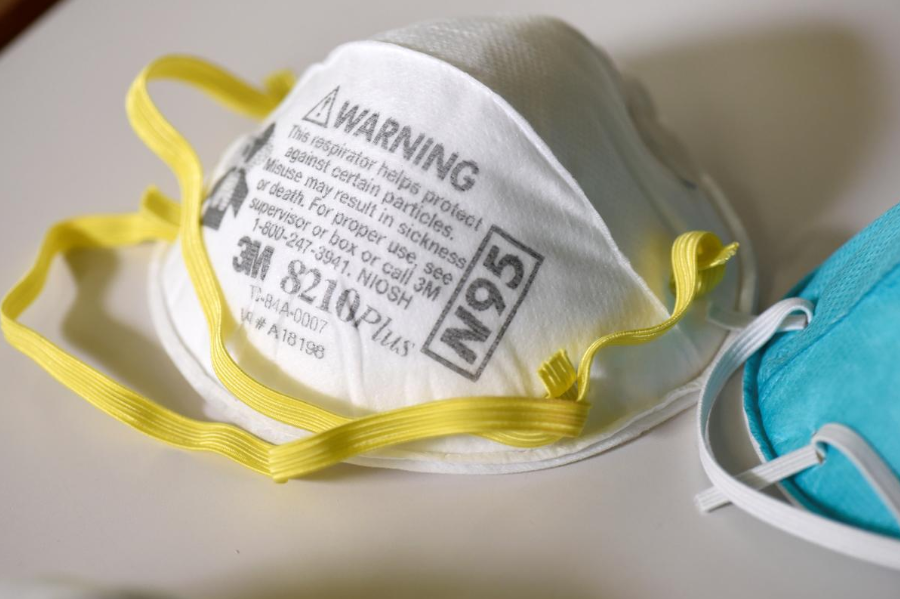
Various N95 respiration masks at a laboratory of 3M, that has been contracted by the U.S. government to produce extra marks in response to the country's novel coronavirus outbreak, in Maplewood, Minnesota, U.S. March 4, 2020. (Photo: Agencies)
As the number of coronavirus cases continues to increase in the United States, health officials at hospitals say they are running short of N95 respirator masks.
N95 masks are tighter-fitting and thicker than surgical masks. While surgical masks can block only large-particle droplets, N95 masks filter out 95 percent of all airborne particles when used correctly.
The Centers for Disease Control and Prevention (CDC) recommends that they be used only by people with infectious respiratory illness and health care workers who treat or otherwise come in contact with them.
The federal government's Strategic National Stockpile of medical supplies includes 12 million medical-grade N95 masks and 30 million surgical masks — only about 1 percent of the 3.5 billion that Health and Human Services Secretary Alex Azar has said would be needed over a year if the outbreak reaches pandemic levels.
HHS plans to buy 500 million surgical masks and N95 respirators for the national stockpile over the next 18 months, a move it said would encourage manufacturers "to immediately increase production of N95s for use by health care professionals".
The hospital shortages stem from global supplies being depleted after the lengthy outbreak in China and because of widespread panic-buying of masks by anxious citizens here and abroad.
In the US, increased efforts by mask makers 3M, the biggest American producer of N95 masks, and DuPont De Nemours are also falling short of demand, officials said. DuPont said it has increased production by more than three times its usual global capacity.
"We've added staff, we've added overtime, we've added technology, we've been increasing manufacturing lines," 3M spokeswoman Jennifer Ehrlich told The New York Times. "We expect this demand for respirators and other supplies to continue to outpace supply for the foreseeable future."
The Food and Drug Administration (FDA) last week approved a request from the CDC to allow healthcare workers to use similar respirator masks approved by the National Institute for Occupational Safety and Health that aren't currently regulated by the FDA, and are typically used in construction and manufacturing during the coronavirus outbreak.
The CDC also said that if shortages worsen during an outbreak, N95 masks can be used for "repeated close contact encounters with several patients" instead of being thrown away after one use, and beyond their manufacturer-designated shelf life.
Michael Einhorn said his medical-supply company in New York may run out of masks in two weeks unless the Chinese manufacturer of his branded equipment resumes production this week.
"We're having to make tough decisions every day on who gets masks and who doesn't," Einhorn told Fortune. He is the founder of Dealmed-Park Surgical, which employs almost 100 people. "Do masks go to the suburban hospital or the 911 responders? It's a huge responsibility, and we know we're going to make some mistakes."


